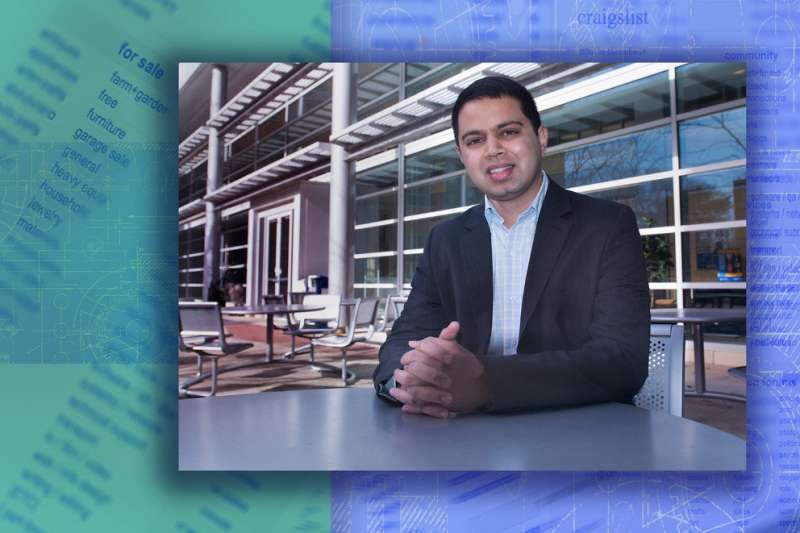Suvrat Dhanorkar is assistant professor of supply chain management in Penn State's Smeal College of Business. Credit: Patrick Mansell
Online exchanges, such as Craigslist, may not just help consumers declutter and earn a few extra bucks—a Penn State researcher suggests that using those exchanges may help inspire behavior that is good for the environment.
A recent study showed that when Craigslist, which allows users to post classified advertisements, entered a geographic market, there was a corresponding 2 to 6 percent annual drop in that market's municipal solid waste, according to Suvrat S. Dhanorkar, assistant professor of supply change management, Penn State. He added that the online exchange may make it simpler for people to sell or give away items they no longer need rather than throw them away.
"Consumerism has grown exponentially—I don't want to take a side whether that's good or bad—but that's a fact and it's going to grow," said Dhanorkar. "As more and more countries become wealthier, the people there are going to consume more, but while consumerism is here to stay, the waste need not be. We may be able to let consumerism grow while, at the same time, we can also cut back on the surplus or waste that is being generated in the system by reusing more products."
The reuse behaviors generated by online exchanges could eliminate millions of tons of waste in landfills and save billions of dollars in costs associated with managing the waste, according to Dhanorkar, who reported his findings in Management Science.
"In the case of New York City, the city spends about $2.3 billion annually on managing the 7.8 million tons of municipal solid waste, which is generated by 8.5 million people," said Dhanorkar. "According to the estimates, a 2 to 6 percent reduction in municipal solid waste, owing to Craigslist entry, would lead to approximate annual savings worth millions of dollars for large cities. That's millions of taxpayer dollars that could be diverted from managing waste to other needs."
Reuse could also help clean up greenhouse gasses in the atmosphere. A conventional landfill releases up to approximately 1.287 tons of carbon dioxide for each ton of municipal solid waste, according to Dhanorkar.
He added that, for large cities, a 2 to 6 percent decrease in municipal solid waste could potentially reduce 200,000 to 600,000 tons of greenhouse gasses annually.
Using online exchanges to boost reuse behaviors could also help reduce municipal waste in other rapidly growing cities, such as Singapore, Shanghai and Mumbai.
Craigslist started in 1995 as a local online exchange serving the San Francisco area. Between 2000 and 2005, the exchange expanded into all 50 states. About 50 million web users visit the site each month.
Dhanorkar chose Craigslist because, in addition to its fast-growing popularity, the spread of its use gave him the ability to study the relationship between the exchange's introduction into an area with the trends in municipal waste in that community. He analyzed county-level municipal solid waste in five states: California, Florida, Minnesota, North Carolina and South Carolina.
Other online exchanges may promote similar reuse behaviors. For example, the Freecycle Network lets users give items away, instead of putting them in the trash.
"There's no reason to think that businesses, like Freecycle, or Gumtree in the U.K., or OLX in India, wouldn't deliver the same types of benefits," said Dhanorkar.
Future research might look at whether a similar online exchange model in the business-to-business space may help reduce municipal waste.
Journal information: Management Science
Provided by Pennsylvania State University
























